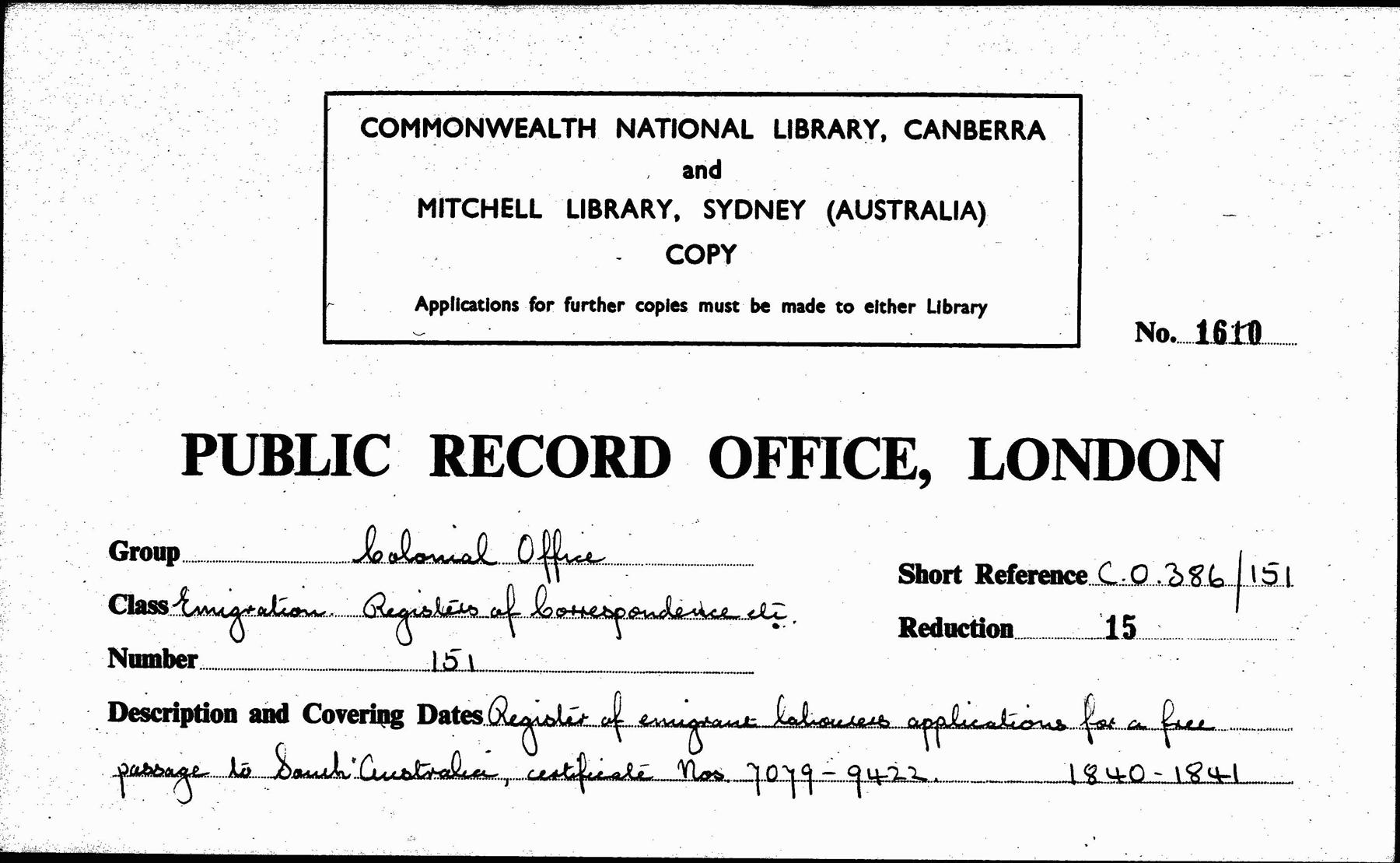APPLICATIONS for FREE PASSAGE to SA 1836-1840
A COLONIAL DREAM
In 1829, a group in Britain led by Edward Gibbon Wakefield were looking to start a colony based on free settlement rather than convict labour. After problems in other Australian colonies arising from existing settlement methods, the time was right to form a more methodical approach to establishing a colony. In 1829 an imprisoned Wakefield wrote a series of letters about systematic colonisation which were published in a daily newspaper. He suggested that instead of granting free land to settlers as had happened in other colonies, the land should be sold. The money from land purchases would be used solely to transport labourers to the colony free of charge, who were responsible and skilled workers rather than paupers and convicts. Land prices needed to be high enough so that workers who saved to buy land of their own remained in the workforce long enough to avoid a labour shortage.In 1834 the South Australian Association, with the aid of such figures as George Grote, William Molesworth and the Duke of Wellington persuaded the British Parliament to pass the South Australian Colonisation Act and the British government appointed a Board of Commissioners from people nominated by the South Australian Association, with the task of organising the new colony and meeting the condition of selling at least £3,500 worth of land.

Return Home


